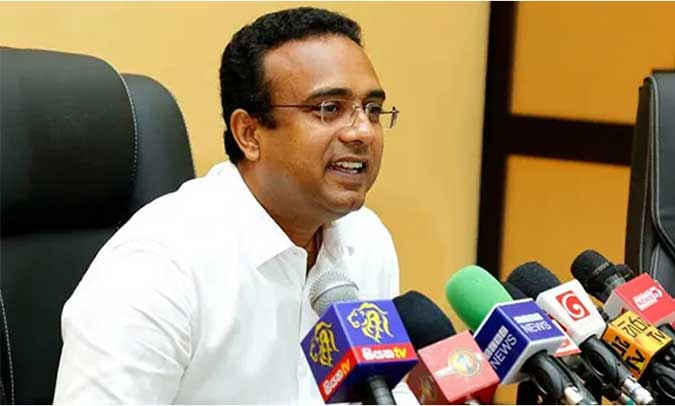NEWS

By NESHELLA PERERA
Millions of less affluent Sri Lankans works in the Middle East are sending money home to keep the economy afloat while the more educated who hold higher post in developed countries keep money stashed elsewhere, Labour Minister Manusha Nanayakkara said.
“The most amount of foreign exchange generated for Sri Lanka comes from the Middle Eastern region,” Nanayakkara said in Parliament.
“The ones who earn the least contribute to most of the remittances and those who hold bigger posts in developed countries, send very little money to the country because they are politically misled and will not send money.”
Many liberal developed nations give permanent resident status to foreign nationalized who can later become naturalized citizens, unlike nationalist nations like Sri Lanka critics say.As a result, they buy assets in those countries.
Middle Eastern nations also do not allow foreigners to settle permanently as a general rule.Sri Lanka is trying to raise salaries of workers in the Gulf, he said.
“We have discussed with Saudi Arabia, Oman, Kuwait and The United Arab Emirates to increase the salary earned by these women,” Nanayakkara said.
Many Sri Lankans are now leaving the country after the central bank printed money to maintain an artificially low policy rate and boost growth without working for it (output gap targeting or stimulus) under a discretionary flexible inflation targeting regime and collapsed the rupee.
Before the money printing central bank was set up in August 1950, Sri Lanka was a net importer of labour, like Dubai and Singapore.The weaker the currency the lower the salary that people will be prepare to migrate to countries with monetary stability.Sri Lanka has printed money for 73 years creating forex shortages, and with the support of economists in many cases have laid the blame on importers.In this crisis, the worst in the history of the central bank exporters were blamed and public money was used to track their transactions.
Minister Nanayakkara’s praise comes a few months after expat workers were themselves were scapegoated for sending money through unofficial gross settlement system which had been used for long distance maritime trade for centuries.
Remittances shifted to Undiyal/Hundi or Hawala settlement system from the formal banking system after the central bank printed money to artificially lower interest rates and maintain a fixed policy rate.Undiyal funds kept the country fed through open account trade, with the formal banking system was unable to prioritize as the newly printed money struggled to go out of the country through the credit system.
Sri Lanka’s remittances through official channels rose to 568 million US dollars in March 2023, up 78 percent from a year earlier, as parallel premiums declined as the central bank put brakes on money printing.( ECONOMYNEXT)
